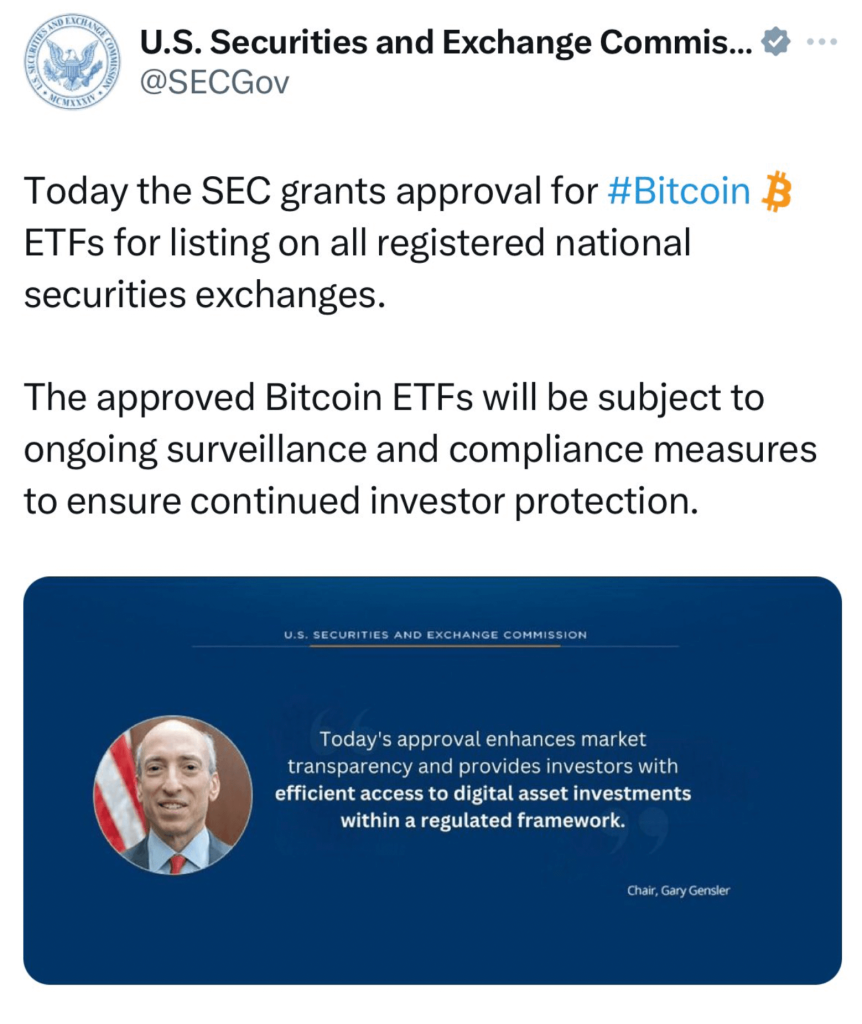
The U.S. Securities and Exchange Commission (SEC) recently experienced a cybersecurity breach on its official X account, previously known as Twitter. This incident involved the publication of a false statement approving Bitcoin exchange-traded funds (ETFs), raising questions about the integrity of information dissemination and potential market manipulation.

Unauthorized Tweet Causes Market Fluctuation
The unauthorized announcement on the SEC’s account stated the approval of Bitcoin ETFs for all national securities exchanges, paired with an image of SEC Chair Gary Gensler. However, the post was missing standard SEC website links, which usually accompany such announcements. The SEC Chair quickly clarified on his account that the agency’s account had been compromised. The SEC also issued a follow-up statement confirming the hacking, as corroborated by their spokesperson to CNBC.
Crypto Market Reacts Swiftly
The market reacted almost instantly to the false announcement, with Bitcoin’s price momentarily spiking from around $46,750 to $47,972, before falling back to $44,748 following the SEC’s clarification. This rapid fluctuation underscored the cryptocurrency market’s sensitivity to news and social media influences.
Speculations on Deliberate Market Manipulation
Amidst the hacking claims, some market observers speculate that the false announcement might have been an intentional act of market manipulation by the SEC itself. This theory suggests a deliberate attempt to influence the cryptocurrency market’s dynamics, although no concrete evidence supports these claims.
The Nature of Bitcoin ETFs
Bitcoin ETFs, akin to mutual funds, are asset bundles whose shares are traded on exchanges. They offer a simplified way for investors to speculate on Bitcoin’s price without direct cryptocurrency engagement. Despite several attempts, the SEC has historically been reluctant to approve Bitcoin ETFs, citing regulatory concerns.
Implications and Conclusion
The incident at the SEC’s social media account highlights the critical need for robust cybersecurity measures in financial regulatory bodies. It also brings to light the significant impact of social media on financial markets, especially in the highly volatile cryptocurrency sector. The SEC’s ongoing role in cryptocurrency regulation remains a focal point for market stability, emphasizing the necessity for clear and accurate communication in the digital asset landscape.











